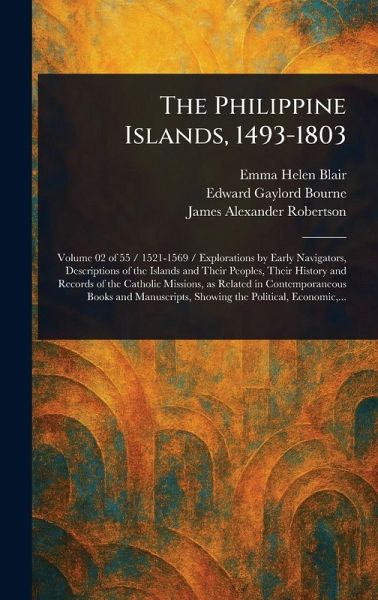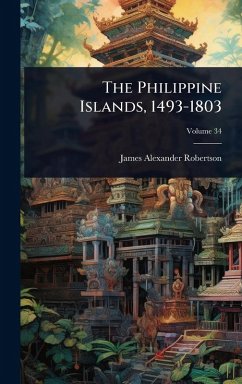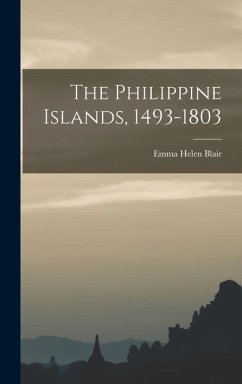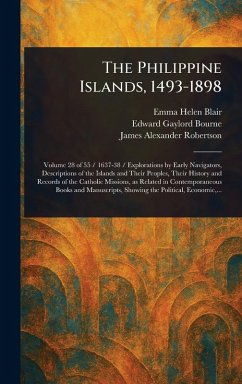
The Philippine Islands, 1493-1803
Versandkostenfrei!
Versandfertig in über 4 Wochen
30,99 €
inkl. MwSt.

PAYBACK Punkte
15 °P sammeln!
Delve into the tumultuous early history of the Philippines with "The Philippine Islands, 1493-1803, Vol. 2, 1521-1569." This meticulously prepared volume offers a detailed exploration of the islands during a pivotal period of Spanish colonization in the 16th century. Witness the unfolding of Philippine history as it was shaped by exploration, conquest, and the establishment of a new world order. This volume covers the era following the demarcation line of Alexander VI, providing crucial insights into the political and social dynamics of the Spanish colony. Explore the firsthand accounts and hi...
Delve into the tumultuous early history of the Philippines with "The Philippine Islands, 1493-1803, Vol. 2, 1521-1569." This meticulously prepared volume offers a detailed exploration of the islands during a pivotal period of Spanish colonization in the 16th century. Witness the unfolding of Philippine history as it was shaped by exploration, conquest, and the establishment of a new world order. This volume covers the era following the demarcation line of Alexander VI, providing crucial insights into the political and social dynamics of the Spanish colony. Explore the firsthand accounts and historical analyses that illuminate this complex chapter in Southeast Asian and Latin American history. A vital resource for anyone interested in the Philippines, Spanish colonialism, and the age of discovery. This work has been selected by scholars as being culturally important, and is part of the knowledge base of civilization as we know it. This work is in the public domain in the United States of America, and possibly other nations. Within the United States, you may freely copy and distribute this work, as no entity (individual or corporate) has a copyright on the body of the work. Scholars believe, and we concur, that this work is important enough to be preserved, reproduced, and made generally available to the public. We appreciate your support of the preservation process, and thank you for being an important part of keeping this knowledge alive and relevant.














